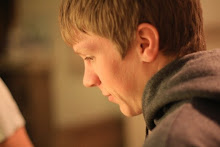Learning a new language is tough. Learning a new language in 3 hour sessions every weekday is even tougher. Along with weird rules and punctuation marks above letters, there are words that look familiar, and appear to be words one can easily figure out. But turn out to be something very different. This blog is about these “fake friends.”
What is a fake friend? Let me give you an example before we jump into this. “Embarasado” in Spanish appears simple enough. One day, sophomore year of high school I messed up, and told the class I was embarasado. My teacher almost fell on the floor laughing and informed me that I just told the class I was pregnant. See what I’m talking about? That’s just mean!
Italian is no different. The joy I feel when seeing a word I think I might be able to guess the meaning of is quickly squashed when I find out I’m not even close. For example, yesterday in class I ran across the word “tornato” in a paragraph that I had no idea what was going on. I thought, “Wow, they have really severe weather in Italy.” Turns out it’s a conjugated form of “tornare” which means “to return.” Long story short: I wasn’t even close. (Side note: even Microsoft Word’s spell check wanted to make it “tornado!”)
This does not mean "I am severe weather."

That was just the beginning. I went to the grocery store this morning and that’s when the fun really begin. It appeared Coca-Cola had two very different ingredients in Italy: “zuccheri” and “grassi,” which I naturally thought meant “zucchini” and “grass.” While figuring out why Rome would want to ruin a perfectly good drink, I walked down another aisle and found a whole stash of “zuccheri,” which it turns out was sugar. I had to look up “grassi” when I got home and found out it meant “fat,” (Side note: “fatto” - the conjugated form of fare which “means to do or make”- also does not mean “fat.”)
Don't worry, Coke's the same here...sort of.

A sign in the grocery store had an arrow pointing toward the front that said “bagni,” which I followed thinking I’d get to the checkout stands (where they have bags). Wrong. I ended up in the bathroom, apparently with a very confused look on my face because an older woman asked me if I was ok (honestly that’s what I assume she said, I couldn’t really understand her-my Italian’s not the best yet; I heard “bene.”).
This way to the bags!

Two more exciting (and I use the term exciting very loosely; I enjoyed this
game) words I came across were “contenuto” and “vincitori.” These two I was actually fairly close to. The first came on a water bottle, and I couldn't figure out why a water bottle would be so happy (content)? Well it's not, it explains how much the bottle contains, something I probably should've known right away. The latter I thought meant “invincible,” but I couldn’t figure out why it would be on a can of Pepsi. In real Italian, it means “winner.” Apparently there’s some kind of contest going on, and anyone, even me can be a vincitori!
You will make this bottle content if you recycle.

Winners drink Pepsi!

My final false friend from the store was milk. I was trying to get something healthy to offset the Coke, Pepsi and other various items I bought, so I went to the dairy aisle looking for “milci,” “creamci,” or even “moooooooooci” but could not find anything like that. Fortunately I finally found what I was looking for, in a bottle labeled “latte.” Hoping it was in fact what I was looking for (I don’t drink coffee) I threw it into my basket and moved on.
Got milk? I do!

It’s not just in the grocery store, certain words in class confuse me too. “Guardare” which one might think means “to guard” actually means “to watch.” In fact, I haven’t “guardo la TV” since I got here. “Volentieri” which almost sounds like “violent” is what you say after someone introduces his or herself to you (it means “with pleasure”). “Notte” (which does not mean “note!”) means “night.” Finally, the cognate I least saw coming, is the Italian word “coincidenza.” It seems so easy doesn’t it? Even in the context, talking about taking the train. Feeling confident, I continued reading, thinking that it was a coincidence that these two friends were on the same train. I continued to think that until I glanced at page before my homework assignment and discovered that “coincidenza” actually means “connection.” Yeah, I feel like I had absolutely no chance of getting that.

No comments:
Post a Comment